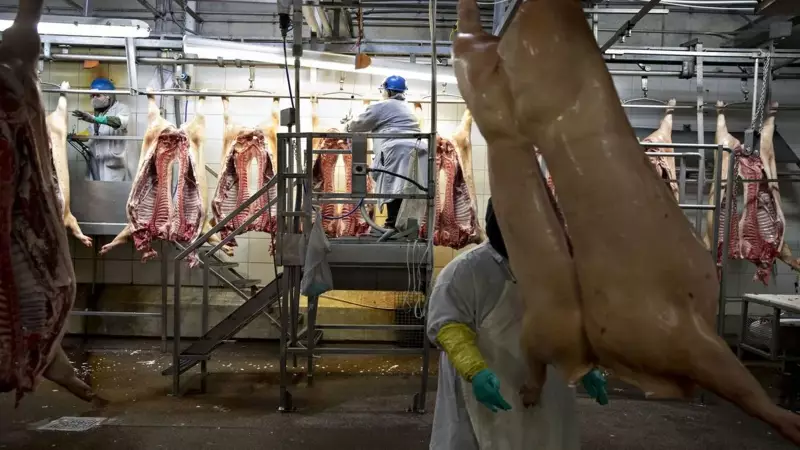
The Assam government has declared a major emergency in the state's pig farming sector, implementing drastic measures to contain the rapidly spreading African swine fever (ASF). With infection rates reaching alarming levels, authorities have banned pork sales in seven severely affected districts and halted all inter-district movement of live pigs across Assam.
Uncontrollable Outbreak Forces Government Action
Official data reveals the staggering scale of the crisis. Since January 2025, approximately 14,500 pigs have been culled in containment efforts, while over 3,000 additional animals have succumbed to the disease naturally. The situation has escalated dramatically in recent weeks, prompting the Animal Husbandry and Veterinary Department to issue emergency orders on Sunday, November 16, 2025.
Dr. Jayanta Kumar Goswami, director of the department, confirmed the severity of the outbreak to media sources. The department's official statement described the situation as "alarmingly rising across the state with no bound," indicating the challenging nature of containment efforts.
Geographical Spread and Historical Context
The current outbreak has identified 297 distinct epicenters of infection throughout Assam, with particular concentration in seven districts: Dhemaji, Kamrup, Lakhimpur, Sivasagar, Darrang, Jorhat, and Dibrugarh. The speed of transmission is concerning, with 84 new epicenters reported in October 2025 alone.
This isn't Assam's first encounter with the devastating disease. African swine fever initially appeared in the state in 2020, and according to government documents, it has "devastated the piggery industry in the state" since its introduction. Historical data presented to the Lok Sabha in July 2025 by Union Minister S P Singh Baghel showed that over the previous five years, 44,596 pigs had died from ASF while 8,295 were preventatively culled.
Economic Impact and Industry Significance
The restrictions come as a severe blow to Assam's agricultural economy. According to the 20th livestock census conducted in 2019, Assam was home to 20.99 lakh pigs, representing a significant livestock sector that the state government has actively promoted in recent years.
The piggery industry provides livelihoods for thousands of farmers across rural Assam, making the current crisis both an animal health emergency and an economic disaster. The complete ban on pork sales in the seven worst-affected districts effectively shuts down a major protein source and income stream for these communities.
The government order specifies that both the inter-district movement ban and pork sales prohibition will remain in effect "until further orders," indicating the measures are intended as temporary but open-ended restrictions until the outbreak is brought under control.





